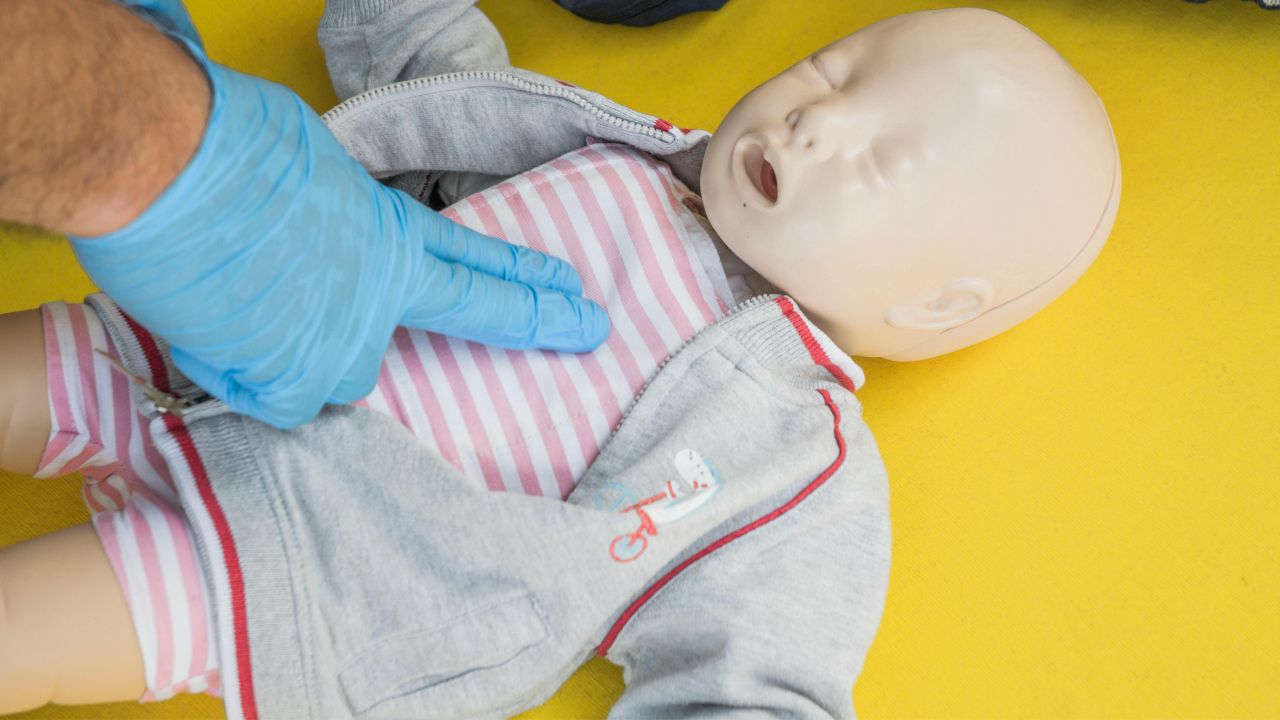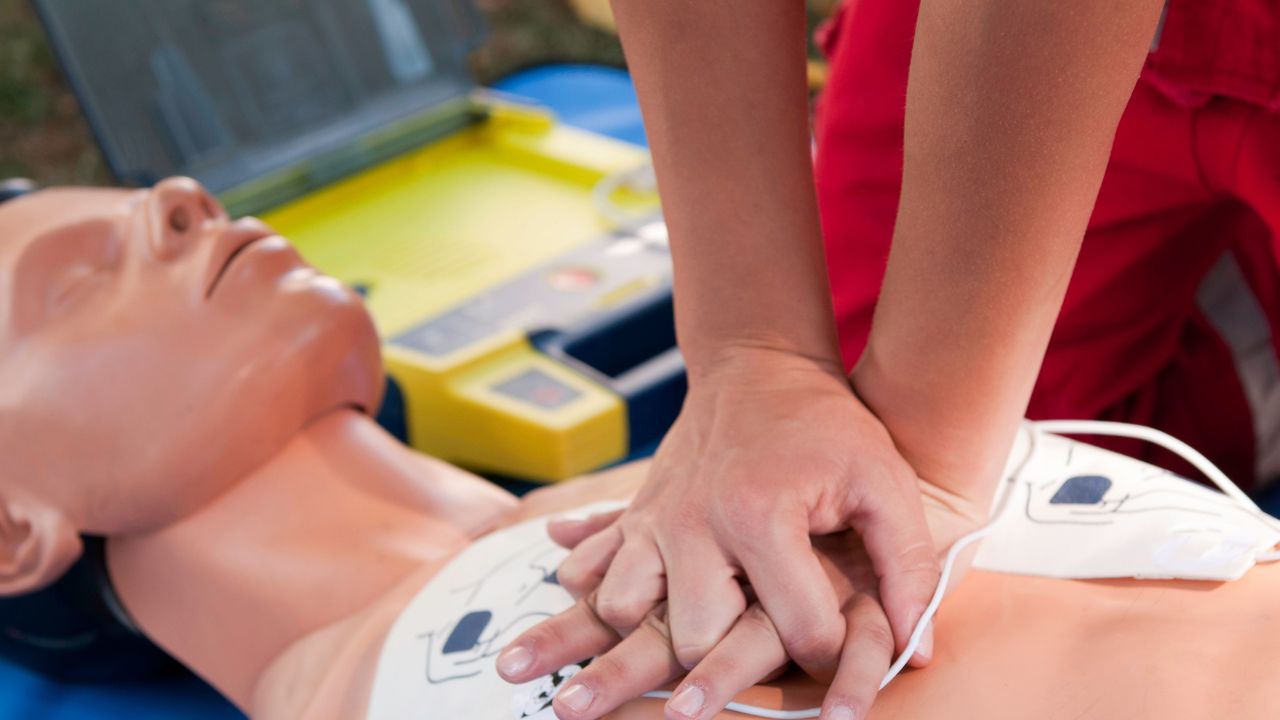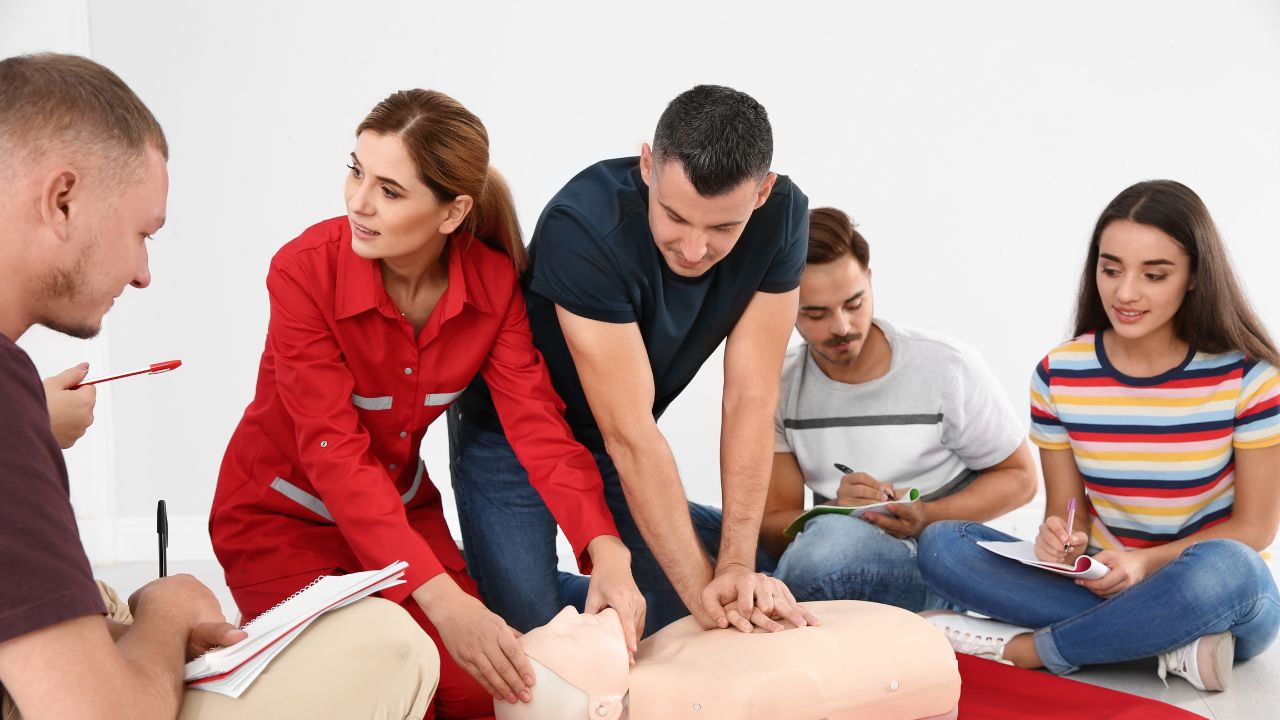SAME DAY CERTIFICATIONS!
Be prepared to save lives with CPR, First Aid, AED, and BLS training from Medic One Academy. Our programs are nationally recognized and approved by Clark County, the American Dental Association, the Nevada Registry, and more. Learn from experienced instructors and join thousands of students who have gained the confidence and skills to act quickly and make a difference when it matters most.
-

Pediatric CPR
Find out more -

Adult CPR
Find out more -

First Aid, CPR, and AED
Find out more -

Basic Life Support (BLS)
Find out more
Frequently Asked Questions
What is CPR?
Cardiac pulmonary resuscitation (CPR) is the term used to describe the combination of chest compressions and rescue breathes used when someone has a cardiac arrest. Studies show that CPR can and does save lives but sadly there are insufficient numbers of people becoming CPR certified.
How often do I need to renew my Certification.
Organizations like the American Heart Association (AHA) and Red Cross recommend renewal every 2 years to keep your skills fresh and aligned with updated guidelines.
Some employers or industries (e.g. healthcare, childcare) may require annual refreshers or more frequent updates.
What is the importance of First Aid Training?
Saves Lives – Quick action can make the difference in emergencies like heart attacks, choking, or bleeding.
Prevents Conditions from Worsening – Helps stabilize injuries until professional help arrives.
Reduces Recovery Time – Early care can speed up healing and reduce complications.
Builds Confidence – Trained individuals stay calm and take control in emergencies.
Promotes Safety Awareness – Encourages prevention and hazard recognition.
Valuable at Work – Meets safety standards and protects coworkers.
Helps Family and Friends – Most emergencies happen at home.
Encourages Helping Others – Creates a culture of care and responsibility.
In short: First Aid training prepares you to act quickly, effectively, and confidently to protect lives and health.
What is the most common CPR certification?
The most common CPR certification is Basic Life Support (BLS) for healthcare professionals.
Who needs to take First Aid and CPR?
First Aid and CPR classes are valuable for everyone, but they are especially important—and often required—for certain groups:
People Who Must Take First Aid/CPR:
Healthcare Professionals
Doctors, nurses, EMTs, paramedics, medical assistants
Often require Basic Life Support (BLS) certification
Childcare Providers
Daycare workers, babysitters, teachers, school staff
Usually required to have Pediatric First Aid & CPR
Workplace Safety Personnel
First aid officers, safety managers, construction workers
Required by OSHA in many industries
Lifeguards & Fitness Professionals
Lifeguards, swim instructors, personal trainers, coaches
Need CPR, AED, and First Aid certification
Law Enforcement & Firefighters
Police, firefighters, security personnel
Often trained in advanced First Aid and CPR
People Who Should Take First Aid/CPR:
Parents & Guardians
Accidents often happen at home, especially with young kids
Teachers & School Staff
Even if not required, it helps in handling emergencies
Outdoor Enthusiasts
Hikers, campers, climbers, and adventure guides
Wilderness First Aid is recommended
Caregivers & Elderly Support
Those caring for seniors, people with disabilities, or chronic illnesses
General Public
Anyone can face an emergency at work, in public, or at home
Bystanders are often the first responders before EMS arrives